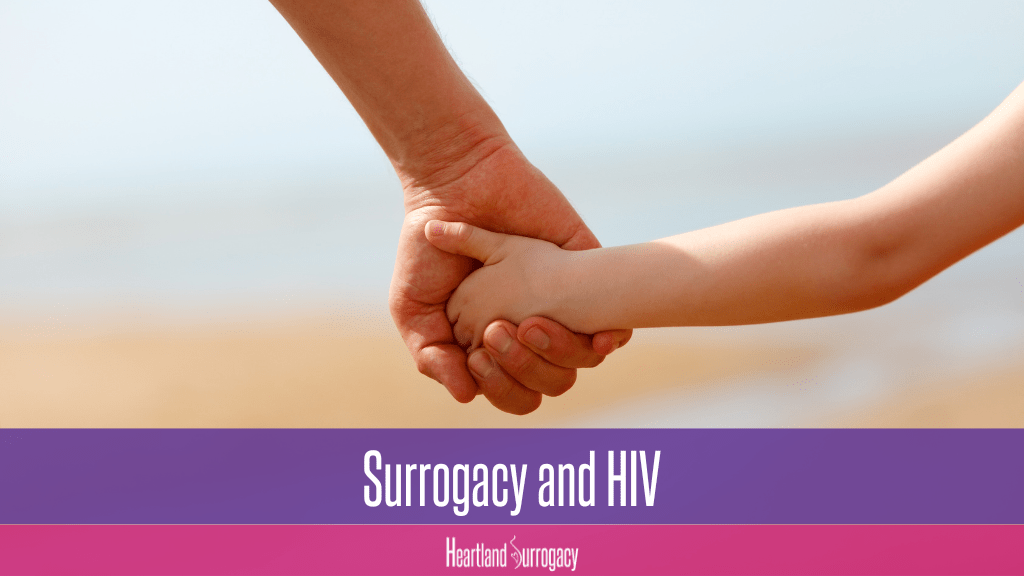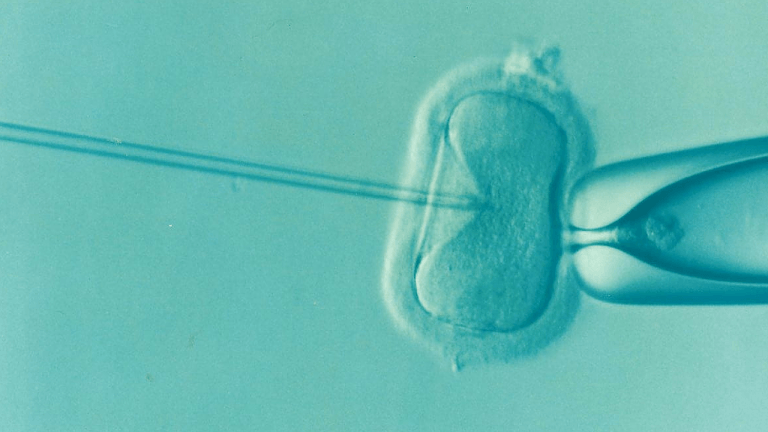Surrogacy and HIV
So, you’ve decided to pursue gestational surrogacy? Congratulations on your big decision! Now, more questions will follow: Will you carry for a couple or a single person? Are you willing to transfer two embryos and possibly carry twins? Among all these questions is one you may not have thought of: are you willing to carry for an HIV+ intended parent?

If this is something that you would consider, here is some information for you. Please note that the following information and statistics apply only if the HIV+ intended parent is providing sperm for the potential baby. This information does not apply to situations where the egg provider or gestational carrier is HIV+.
First, What Is HIV?
HIV stands for human immunodeficiency virus, which is the virus that can lead to AIDS (acquired immunodeficiency syndrome) if not treated. HIV attacks the body’s immune system, which is responsible for fighting off infections. Unlike some viruses, the human body can’t get rid of HIV completely, even with treatment, so people who contract it will have it for life.
What Are The Risks Of Being A Surrogate For An HIV+ Intended Parent?
Modern science and medical literature support the safety of gestational carriers being surrogates for HIV+ intended parents. Since 1996, it has been possible to test the viral “load” or amount of virus in an HIV+ person’s body. In order to pursue surrogacy, an intended parent needs to have an undetectable viral load, which is achievable, and even common, with coherence to the modern drug regimen called anti-retroviral therapy. It is important to note that HIV lives in the semen, the fluid that surrounds the sperm, and not the sperm itself. Using the latest advances in laboratory testing, it is possible for an HIV+ person to provide sperm for an in vitro fertilization pregnancy without passing the virus to his gestational carrier or child. In fact, there have been 800 cases of an HIV+ person providing sperm for IVF, and there has not been a single case of HIV transmission in the reported medical literature.
What Does It Mean To Have HIV, But Be "Non-Infectious"?
The Swiss Federal Commission for HIV/AIDS sets forth the criteria for a person to be considered non-infectious. These include: remaining fully adherent to their HIV medications and being regularly monitored, providing records that show their viral load has been fully suppressed (less than 48) for at least six months, and not having any other sexually transmitted infections.

How Is The Sperm Tested?
HIV testing for sperm occurs at SPAR, the Special Program of Assisted Reproduction at the Bedford Research Foundation Clinical Laboratory in Massachusetts. Using their HIV testing methods and protocol, SPAR has helped bring over 178 babies (including surrogate and non-surrogate pregnancies) into the world safely. The intended parent must provide two to three semen samples, which are “washed,” saved, and tested for residual virus. If any HIV is detected, the sample will be discarded. If HIV is not detected in the samples, the sperm is shipped to the participating IVF clinic for fertilization and embryo transfer.
How Else Is The Surrogate Protected?
As an additional precaution, the gestational carrier will be prescribed a medication to reduce her chance of transmission before exposure. This medication, Truvada, is started before the embryo transfer and is safe to take during the first trimester of pregnancy.
Can Men With HIV Be Active Parents?
Fortunately, people living with HIV in the United States and other developed countries now have a long life expectancy, can be employed, and lead fulfilling and healthy lives. HIV is now considered a long-term, manageable disease. The above precautions allow HIV+ intended parents to know the joy of becoming parents.

How Can A Surrogate Learn More Or Be Matched With HIV+ Intended Parents?
A surrogacy agency can help match HIV+ intended parents with gestational carriers who are willing to help them become parents. The surrogate’s care team can safeguard the health and safety of the surrogate and the intended parent’s child by ensuring that the proper precautions and methods are in place
Where Can I Go To Learn From Other Gestational Carriers Who Have Considered Working With HIV+ Intended Parent(s)?
Michelle is a second time gestational surrogate who is currently carrying for a same-sex, HIV+ couple. Read more about her journey on her personal blog and her featured series on All Things Surrogacy.
Jamie is a second-time surrogate who carried for an HIV+ couple. Read more about her decision here.
Kelly is a three-time gestational carrier who never carried for an HIV+ couple, but shares her perspective on being approached with the question and her thoughts on the experience years later.
Are you motivated to help build a beautiful family? Start your amazing journey today!
